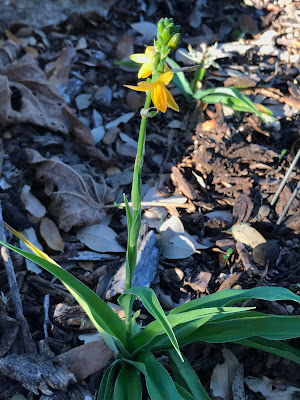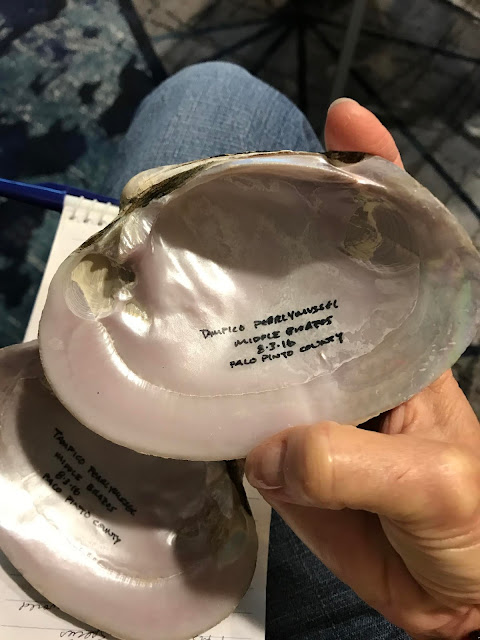 |
| Dr. Brooke Best, botanist, Botanical Research Institute of Texas |
This past weekend, I attended my eighth Texas Master Naturalist state conference, this year held in Rockwall. I wish I could share everything I learned at all the sessions I attended, but that's just IMPOSSIBLE. But I'll give you some samples. How's that?
Dr. Brooke Best gave interesting insights on Latin grammar and how to translate the botanical names of plants. We played like detectives and looked up names in the Stearn's Dictionary of Plant Names for Gardeners.
. |
|
Christopher Ebling, a Black Prairie chapter member, taught us about basic dentrology and tree identification techniques.
At our Friday night dinner, eight-grader Calvin Carpenter gave a brief speech. He's studied white-nose syndrome in bats since FOURTH grade. He should have been our keynote speaker! Here's a 2016 article that gives some details on his work.
Ryan Blackenship, wildlife biologist, Cox McLain Environmental Consulting Inc., introduced me to the amazing world of Texas mussels. I'm going to post some photos separately of some shells he brought to show us.
Nearly everyone has a passion, and fireflies are what light up Ben Pfeiffer, who founded Firefly Conservation & Research. Here are some slides from his presentation.
Christine Gurley, a masters student at University of North Texas, educated us about painted buntings and her research on them. Did you know that young painted buntings are BOTH green? Males do not grow their rainbow pluamge until their second year. That reminded me of male purple martins, which do not turn purply black until their second year.
Alison Northup, a PhD candidate in Ecology at UT Austin, and Cliff Tyllick with Keep Walnut Creek Wild shared information from a research project on tree girdling that they're working on. For more information, click here for an article, "Invaders of Texas Citizen Scientist and UT Graduate Student Study Techniques for Girdling Ligustrum."
My weekend grand finale was attending "How iNaturalist Guides Policy," a session hosted by TPWD biologist Sam Kieschnick. He's always informative AND highly entertaining.


















































